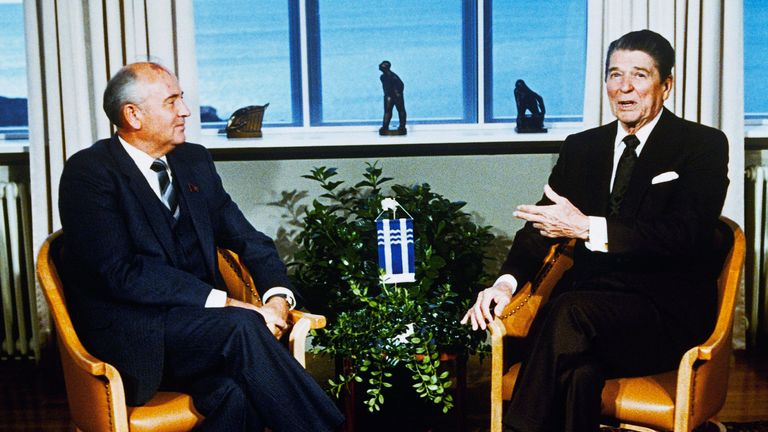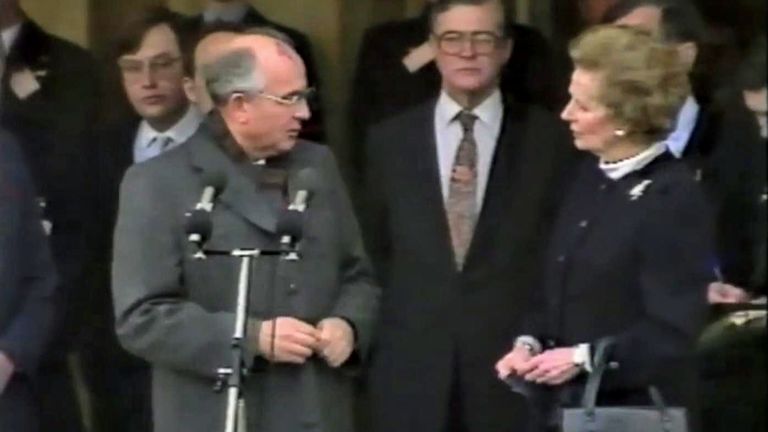
[ad_1]
Former Soviet president Mikhail Gorbachev has died at the age of 91, according to Russian media.
His office earlier said that he was undergoing treatment at the Central Clinical Hospital in Moscow.
He died after a long illness, the medical facility was quoted as saying by news agencies.
Tributes to man who brought about the end of the Cold War – live updates
Russia’s President Vladimir Putin has expressed his deepest condolences, according to a Kremlin spokesman.
One of the most significant figures of the late 20th century, Mr Gorbachev was known for ending the Cold War without bloodshed but failed to prevent the break-up of the Soviet Union in 1991.
He forged weapons reduction agreements with the US, including ex-president Ronald Reagan, and partnerships with western powers to remove the Iron Curtain which had divided Europe since World War Two and bring about the reunification of Germany.
He set out to revitalise the Communist system and shape a new union based on a more equal partnership between the 15 republics of the USSR – Russia, Ukraine, Georgia, Belorussia, Uzbekistan, Armenia, Azerbaijan, Kazakhstan, Kyrgyzstan, Moldova, Turkmenistan, Tajikistan, Latvia, Lithuania and Estonia.
But in the space of six years, both Communism and the Union came crashing down.
He attempted political and economic reforms simultaneously and on too ambitious a scale, unleashing forces he could not control.
When pro-democracy protests swept across the Soviet bloc nations of communist Eastern Europe in 1989, he refrained from using force – unlike predecessors who had deployed tanks to crush uprisings in Hungary in 1956 and Czechoslovakia in 1968.
However, the demonstrations fuelled aspirations for autonomy in the republics.
His series of extraordinary reforms quickly overtook him and resulted in the collapse of the authoritarian state.
When he became general secretary of the Soviet Communist Party in 1985, aged 54, he set out to revitalise the system by introducing limited political and economic freedoms, but his policies spun out of control.
His power was sapped by an attempted coup against him in August 1991, and he spent his last months in office watching republic after republic declare independence until he resigned on Christmas Day 1991.
The following day, the Soviet Union was formally dissolved.
His policy of ‘glasnost’ – free speech – allowed previously unthinkable criticism of the party and the state, but also emboldened nationalists who began to press for independence in the Baltic republics of Latvia, Lithuania, Estonia and elsewhere.
Many Russians never forgave Mr Gorbachev for the turbulence that his reforms unleashed, as they felt the subsequent plunge in their living standards was too high a price to pay for democracy.
He later said he had not considered using widespread force to try to keep the USSR together because he feared chaos in a nuclear nation.
“The country was loaded to the brim with weapons. And it would have immediately pushed the country into a civil war,” he said.
[ad_2]
Source link

